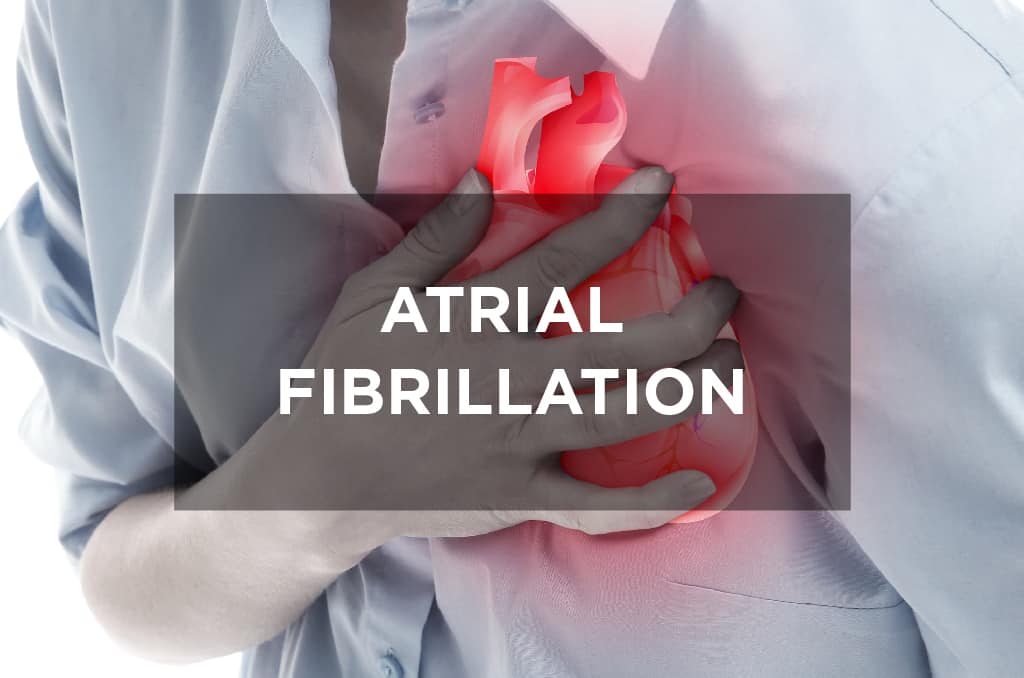
Atrial fibrillation (also called AFib or AF) is a quivering or irregular heartbeat that can lead to blood clots, stroke, heart failure and other heart-related complications. Also an increased risk of atrial fibrillation among people with heart conditions and a problem that increases with age.
Symptoms of atrial fibrillation
Some people have no symptoms and are unaware of their condition until it’s discovered during a physical examination for other purpose. The following information are some signs and symptoms of AF
- Palpitations
- Fatigue
- Reduced ability to exercise
- dizziness
- Shortness of breath
- Chest pain

Causes
Atrial fibrillation can affect adults of any age. It affects more men than women and becomes more common in aging population. It affects about 10% of people over 75. Atrial fibrillation is associated or caused by
- Heart conditions Heart disease including Hypertension (high blood pressure), Coronary artery disease, Heart valve disease, after heart surgery, hart failure, cardiopulmonary and Congenital heart disease.
- Non heart conditions Other conditions such as Aging population, Obesity, sleep apnea. Diabetes, Pulmonary embolism, Chronic lung disease, Hyperthyroidism, and Viral infection
- unknown cause

How Is Atrial fibrillation Diagnosed?
Atrial fibrillation (AF) is diagnosed based on your medical and family histories, a physical exam, and the results from tests.
- EKG (ECG)
- Echocardiography
- Transesophageal echocardiography (TEE)
- Chest X Ray
- Blood Tests






